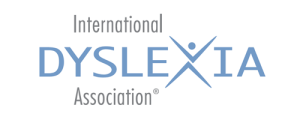What Your Pediatrician Says About Vision Therapy
Written by Sandie Barrie Blackley, Speech-Language Pathologist
Published on September 30, 2015
 Pediatricians Caution Parents Not to Waste Money on Vision Therapy
Pediatricians Caution Parents Not to Waste Money on Vision Therapy
Beginning about 5 years ago pediatricians started cautioning parents of kids with reading disorders to avoid ineffective and costly treatments such as vision therapy and to look instead for “proven education and language-based interventions”.
This year Pediatrics journal published another study that supports this advice. In research based on thousands of children aged 7 to 9, no evidence was found for an association between specific learning disorders with impairment in reading (dyslexia) and vision abnormalities. The researchers concluded that there is no evidence that vision-based treatments would be helpful for children with severe reading impairments.
Pediatric ophthalmologists explain: “Children with dyslexia often lose their place while reading because they struggle to decode a letter or word combination and/or because of lack of comprehension, not because of a “tracking abnormality.’ ” (Vision Therapy, American Association for Pediatric Ophthalmology and Strabismus website)
Especially when you are worried about your child it is not hard to be fooled by “pseudo-scientific” jargon! 
The International Dyslexia Association (IDA) has a fact sheet designed to help parents “critically evaluate programs, avoid scams, and move forward toward providing instruction that will truly help…”. Lexercise is a corporate member of IDA and Lexercise therapy meets and exceeds IDA standards.
If you are worried about your child’s reading, spelling and/or writing the free, online Lexercise Dyslexia Screener is a good place to start. If your child struggles to read the single, large-font words on this screener you can be pretty sure it is not due to their vision!
Improve Your Child’s Reading
Learn more about Lexercise today.
Schedule a FREE
15-minute consultation


